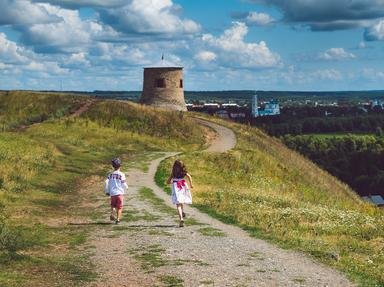Quiz Answer Key and Fun Facts
1. Virginia Militia Colonel/Commander-in-Chief...Continental Army General/Commander-in-Chief
2. Army/Major General...American Revolutionary War, War of 1812, Creek War, First Seminole War
3. Army/General-in-Chief...Mexican War, Civil War
4. Army/General...Northwest Indian War and the War of 1812
5. Army/General World War I...Supreme Allied Commander in Europe/World War II
6. Naval Reserve/Navy Lieutenant...World War II PT Commander
7. Army/Colonel...Spanish American War
8. Army/Major General...War of 1812, Black Hawk War, Second Seminole War, Mexican-American War
9. Naval Reserve/Lieutenant...World War II Battle of the Philippine Sea
10. Illinois State Militia/Captain...Black Hawk War
Source: Author
ponycargirl
This quiz was reviewed by FunTrivia editor
NatalieW before going online.
Any errors found in FunTrivia content are routinely corrected through our feedback system.
